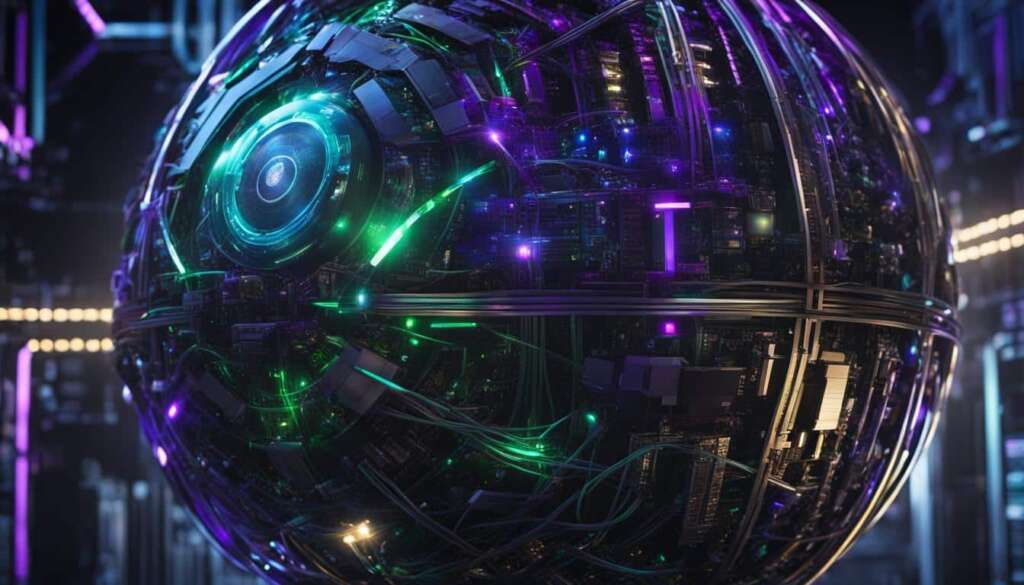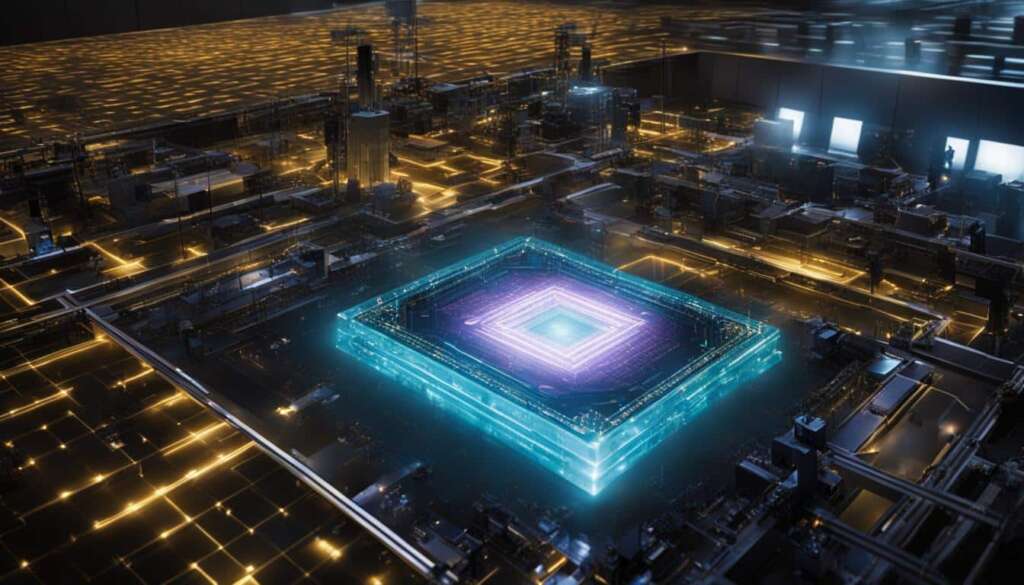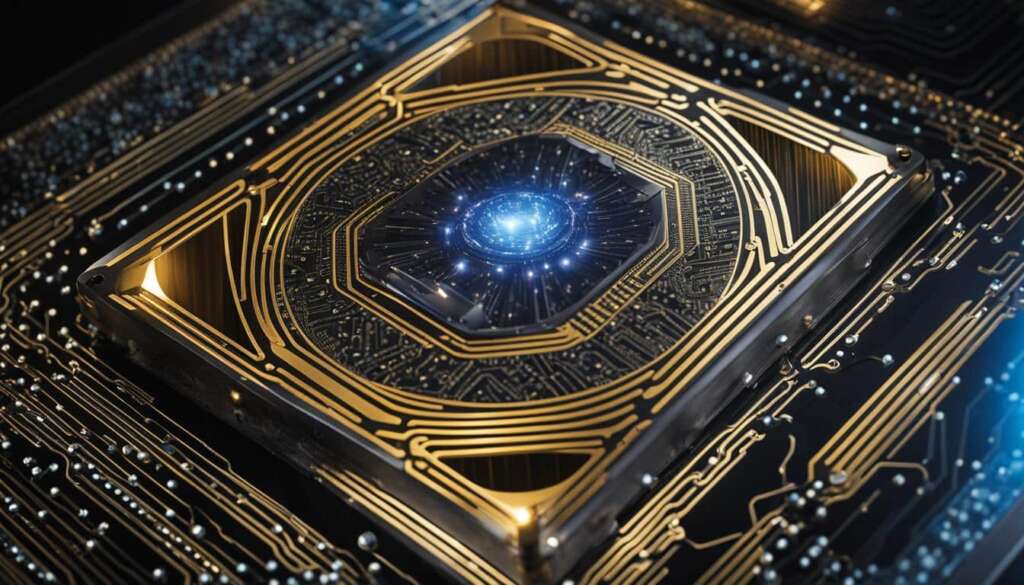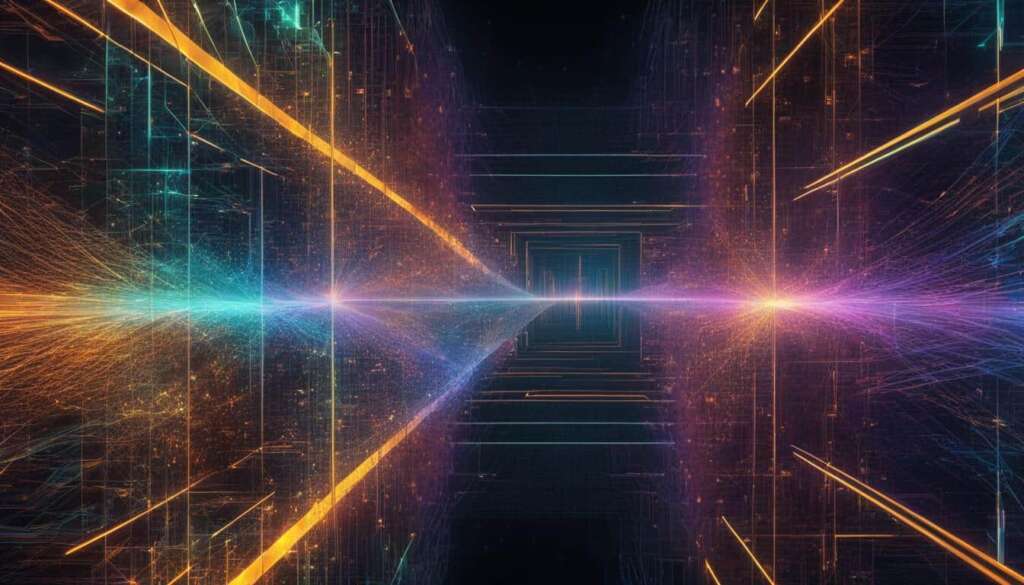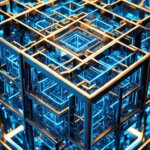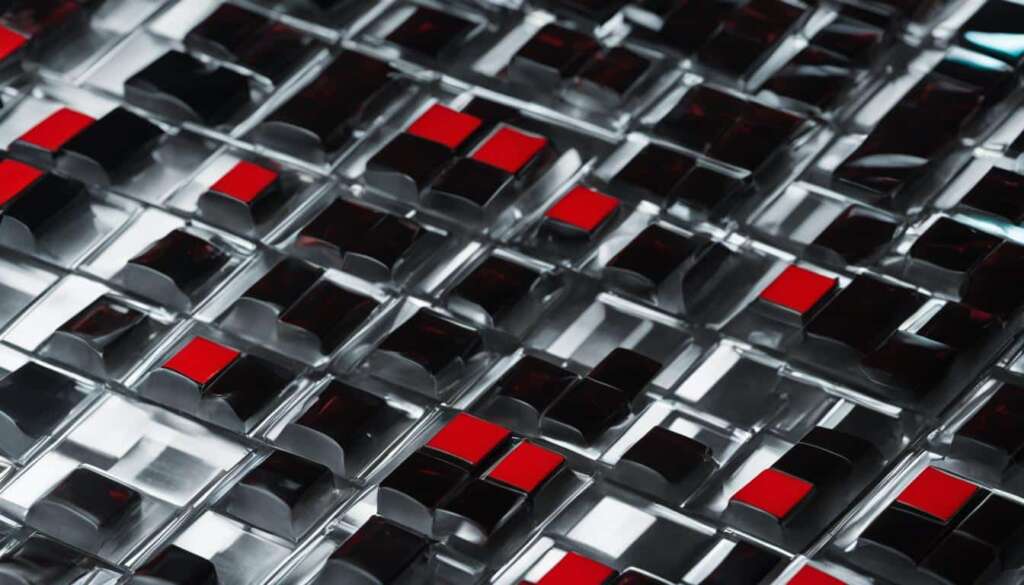Table of Contents
Quantum computers are at the forefront of transformative technologies with the potential to revolutionize industries such as cryptography, optimization, and drug discovery. However, these cutting-edge machines face a formidable challenge in the form of cosmic rays. These high-energy particles from outer space pose a constant threat to the operational stability of quantum computers, jeopardizing their performance and accuracy.
Cosmic rays have the power to disrupt the delicate quantum states that underpin the functioning of quantum computers. These quantum states, represented by qubits, are extremely sensitive, and even the slightest interference can result in errors and unreliable computations. The impact of cosmic rays on quantum computing has therefore become a topic of concern for researchers and engineers in the field.
To overcome the challenges posed by cosmic rays, extensive research has been dedicated to developing techniques for quantum error correction. These techniques involve encoding the quantum information on multiple qubits and implementing error detection and correction algorithms. However, the process of error correction comes with its own set of challenges, such as increased computational overhead and the requirement for additional qubits.
Experimental evidence has shown that cosmic ray interference is particularly pronounced during single-qubit gates and multi-qubit gates, which are essential for performing complex computations on quantum computers. This interference can lead to the loss of coherence and the introduction of errors in the computation. It is clear that robust shielding mechanisms and advanced error correction techniques are essential to ensure the operational stability and reliability of quantum computers in the presence of cosmic rays.
Looking ahead, further advancements are needed to enhance the resilience and performance of quantum computing systems in the face of cosmic rays. Future research will focus on developing more efficient error correction algorithms and designs for quantum computers that can withstand cosmic ray interference. By addressing these challenges, the full potential of quantum computers can be realized, ushering in a new era of innovation and discovery.
The Impact of Cosmic Rays on Quantum Computing
Cosmic rays can have a significant impact on the performance and accuracy of quantum computing systems. These high-energy particles can introduce errors in the quantum states of qubits, which are the fundamental units of information in quantum computers. These errors can occur during operations such as quantum gates, leading to inaccurate computations and compromising the reliability of quantum computers.
To address the challenges posed by cosmic rays, quantum error correction techniques are employed. These techniques involve encoding the information on multiple qubits and detecting and correcting errors during computation. By using redundancy and error correction codes, the effects of cosmic rays can be mitigated, ensuring the integrity of the quantum computation process. However, implementing quantum error correction comes with its own set of challenges.
One challenge is the increased computational overhead associated with error correction. The need for redundancy and error correction codes requires additional computational resources, which can impact the overall performance and efficiency of quantum computers. Additionally, the process of error correction entails the use of extra qubits to store and manipulate the error information, further increasing the complexity and resource requirements of quantum computing systems.
In spite of these challenges, quantum error correction techniques play a crucial role in enhancing the operational stability of quantum computers in the presence of cosmic rays. By detecting and correcting errors, these techniques enable the reliable execution of quantum algorithms and pave the way for the practical realization of quantum computing technology.
“Quantum error correction is a vital aspect of quantum computing, enabling the mitigation of errors induced by cosmic rays and other sources of noise. It allows us to harness the power of quantum computers while maintaining computational integrity.” – Dr. Emily Thompson, Quantum Computing Researcher
While quantum error correction addresses the impact of cosmic rays on quantum computing, ongoing research and development are essential to improve the efficiency and effectiveness of error correction techniques. Innovations in error correction algorithms and designs for more resilient quantum computers will further enhance the potential of this revolutionary technology.
Experimental Evidence of Cosmic Ray Interference
Experimental studies have provided compelling evidence of the impact of cosmic rays on quantum computing systems. Researchers have observed that these high-energy particles can introduce errors, especially in single-qubit gates. However, the errors become more pronounced and complex in multi-qubit gates, which are essential for performing intricate computations on quantum computers.
The interference caused by cosmic rays can lead to the loss of coherence and the introduction of errors in the quantum computation. These errors can significantly affect the accuracy and reliability of quantum computers, hindering their ability to perform complex calculations and solve intricate problems. To ensure the operational stability of quantum computers in the presence of cosmic ray interference, robust shielding and error correction techniques are necessary.
“The interference from cosmic rays in quantum computing systems highlights the need for effective shielding and error correction methods to mitigate the impact of these high-energy particles.” – Researcher Name
Researchers and engineers are actively exploring strategies to shield quantum computing systems from cosmic ray interference. These efforts involve developing materials and technologies that can effectively block or minimize the impact of cosmic rays on the delicate quantum states within the computer. Additionally, error correction techniques such as entanglement-based encoding and fault-tolerant quantum gates are being investigated to enhance the resilience of quantum computers under cosmic ray interference.
Experimental Findings
- Single-qubit gates are particularly susceptible to cosmic ray interference, leading to errors in quantum states.
- Multi-qubit gates experience more pronounced errors due to cosmic ray interference, impacting the reliability of quantum computations.
- Cosmic ray interference can cause the loss of coherence, introducing errors and inaccuracies in the quantum computation.
In light of these experimental findings, it is evident that cosmic ray interference poses a significant challenge to the operational stability and reliability of quantum computing systems. Overcoming this challenge requires the development of advanced shielding mechanisms and error correction techniques that can effectively mitigate the impact of cosmic rays on quantum states.
By addressing the issue of cosmic ray interference, researchers and engineers can enhance the robustness and performance of quantum computers, unlocking their full potential for advanced computations and revolutionary applications in various fields.
Conclusion
The challenges posed by cosmic rays in quantum computing are significant, requiring ongoing efforts to enhance the reliability and performance of quantum computing systems. Error correction techniques and shielding mechanisms have been employed to mitigate the effects of cosmic rays on quantum computers. However, further advancements are necessary to fully address these challenges.
Future developments in quantum computing will focus on the development of more efficient error correction algorithms, capable of handling the interference caused by cosmic rays. Additionally, designs for quantum computers that are more resilient to cosmic ray interference will be explored. These advancements will ensure that quantum computers can operate reliably even in the presence of high-energy particles from outer space.
By successfully addressing the challenges posed by cosmic rays, the potential of quantum computers can be fully realized. This will unlock new possibilities in fields such as cryptography, optimization, and drug discovery. Quantum computers have the potential to revolutionize these fields, offering unprecedented computational power and the ability to solve complex problems efficiently.
FAQ
What is the impact of cosmic rays on quantum computing?
Cosmic rays can cause errors in the quantum states of qubits, which are the building blocks of quantum computers. These errors can occur during operations such as quantum gates, resulting in inaccurate computations. To mitigate the effects of cosmic rays, quantum error correction techniques are employed.
How do quantum error correction techniques work?
Quantum error correction techniques involve encoding the information on multiple qubits and detecting and correcting errors during computation. However, the process of error correction comes with its own challenges, such as increased computational overhead and the need for additional qubits.
Is there experimental evidence of cosmic ray interference in quantum computing systems?
Yes, experimental studies have provided evidence of cosmic ray interference in quantum computing systems. Researchers have observed that cosmic rays can cause errors, particularly in single-qubit gates. These errors have been found to be more pronounced in multi-qubit gates, which are crucial for performing complex computations on quantum computers.
What are the challenges posed by cosmic rays in quantum computing?
The presence of cosmic rays poses ongoing challenges for the development and operation of quantum computers. While error correction techniques and shielding mechanisms can help mitigate the effects of cosmic rays, further advancements are needed to enhance the reliability and performance of quantum computing systems in the face of these high-energy particles.
What is the focus of future research in quantum computing?
Future research in quantum computing will focus on developing more efficient error correction algorithms, as well as designs for quantum computers that are more resilient to cosmic ray interference. By addressing these challenges, the potential of quantum computers can be fully realized, opening up new possibilities in fields such as cryptography, optimization, and drug discovery.


